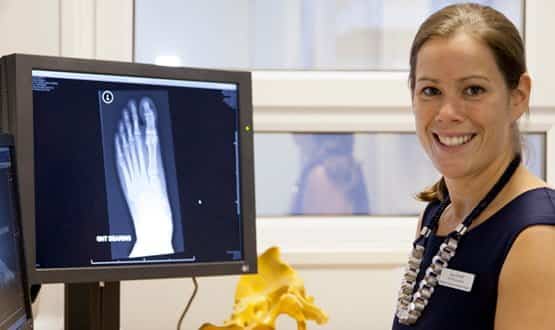Virtual Fracture Clinic reduces hospital return rates, cuts down unnecessary patient journeys
- 6 September 2017

A trust, which is a pioneer of virtual clinics, has reduced hospital return rates, cutting down unnecessary patient journeys with the launch of Microsoft Dynamics 365.
In January this year, Brighton and Sussex University Hospitals NHS Trust deployed Dynamics 365 in its Virtual Fracture Clinic (VFC) which was established in August 2013 as a patient focused alternative to traditional fracture clinics.
It manages more than 10,000 patients, and according to the trust, has reduced outpatient appointments by 56%, saving the NHS more than £750,000.
Prior to the Microsoft solution, VFC relied on basic resources such as the trust’s online referral form on the intranet and an Excel spreadsheet to collect data.
Patients with bone fractures would have arrived at A&E then returned for a follow-up appointment with a consultant. Now, with the new redesign, patients get access to a key rehab adviser within 72 hours of their injury (via video and PDFs online), saving them having to come into hospital for that face-to-face appointment.
When it won the NHS Innovation Best Practice award, Lucy Cassidy, the trust’s advanced practice physiotherapist said it created a good amount of publicity around what they were doing and enabled them to raise money internally to deploy a more robust and manageable online system.
The VFC had received about 5,000 referrals a year which involved face-to-face appointments, prior to deployment, to now discharging 56% of those patients directly without any appointments.
“It’s saved more than 2,000 appointments of patients having to come in the hospital a year”, Cassidy said.
“Not only having huge time saving benefits to patients but it’s also got huge cost savings for the NHS.”
“Traditionally when you came for a face-to-face appointment, I believe it costs the NHS about £150 for you attending… but because we manage patients virtually and without the need for a follow-up it’s more than half price. Each year it saves at least £250,000 for NHS budget holders.”
Staff wanted to improve the patient experience and make reporting and tracking patient information more efficient. Prior to that there was no technology budget available to support the transformation.
While she could not disclose the figure, she said Microsoft match-funded them to help with the solution.
With all the data now stored in one location, Cassidy said the benefits have transformed the way staff function.
“Having an end-to-end solution means you only have to look in one place, use one form and everything gets sent automatically.”
VFC also wanted a model that could be adopted by other hospitals as best practice and are hoping to assist other trusts with deploying the solution.
“A lot of other hospitals have showed interest in deploying this solution… we wanted a platform that they could easily adopt… without the huge costs in terms of development as we have already done the hard work… they [hospitals] can just plug the solution locally”, Cassidy said.
Brighton and Sussex works across two hospital sites and treats over three quarters of a million patients each year.
[themify_box icon=”info” color=”gray”]
Benefits:
- improved patient experience and access to information, made reporting and tracking patient information more efficient for staff
- cut down on hospital return rates, and virtual clinics have saved the NHS considerable cost
- if a return to hospital is necessary the software ensures they come back at the right time to see a specialist in the relevant area
[/themify_box]




